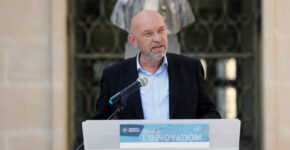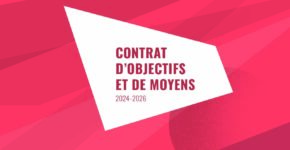Montpellier University Charter on Academic Freedom
On February 3, 2025, the members of the Board of Directors approved the University of Montpellier's charter on academic freedom.
Preamble: Fundamental Principles1
Freedom of expression is generally protected by Article 11 of the 1789 Declaration of the Rights of Man and of the Citizen, Article 10 of the European Convention on Human Rights, Article 11 of the Charter of Fundamental Rights of the European Union, and Article 19 of the 1948 Universal Declaration of Human Rights.
Freedom of expression is also specially protected for Professors, teachers, and researchers.
It stems from academic freedom, a guarantee of independence, which is central to the duties of Professors, teachers, and researchers, pursuant to Articles L.952-2 of the Education Code and L.411-1 of the Research Code.
Under the terms of Article L.952-2 of the Education Code, " Professors, teachers, and researchers enjoy full independence and complete freedom of expression in the exercise of their teaching duties and research activities, subject to the restrictions imposed on them, in accordance with academic traditions and the provisions of this code, by the principles of tolerance and objectivity."
Academic freedoms are the guarantee of excellence in French higher education and research. They are exercised in accordance with the constitutional principle of Professors independence.
Academic freedom is described as a fundamental principle recognized by the laws of the Republic and by the Constitutional Council.2 and by the Council of State3.
Section 1: Protection of academic freedom by the University of Montpellier
Article 1. Academic freedom is understood as "the freedom to think and teach under the aegis of the State, but in complete independence."4.
Article 2. Academic freedom requires a high degree of protection because the expression of opinions by Professors, teachers, and researchers, as well as their contributions to scientific debates and controversies, are in the public interest.
Article 3. The University of Montpellier is committed to academic freedom, both in its exercise and its protection, individually and collectively.
Article 4. The University of Montpellier generally protects the Professors, teachers, and researchers it employs in the exercise of their academic freedom by adopting proportionate measures where necessary.
Article 5. The University of Montpellier shall protect, in particular, the Professors, teachers, and researchers whom it employs when they are involved in "SLAPP suits."5by granting functional protection in accordance with Articles L.134-4 and L.134-5 of the General Civil Service Code, when the conditions of these texts are met.
Article 6. The University of Montpellier protects Professors, teachers, and researchers employed by it when they act as whistleblowers, i.e. if they meet the conditions set out in Law No. 2016-1691 of December 9, 2016 on transparency, the fight against corruption, and the modernization of economic life, and in Law No. 2022-401 of March 21, 2022 aimed at improving the protection of whistleblowers.
Section 2: Conditions for the exercise of academic freedom by Professors, teachers, and researchers
Article 7. Academic freedom guarantees Professors, teachers, and researchers the opportunity for free scientific, creative, and critical development in the fields of research and teaching.
Article 8. Academic freedom is understood, from a research perspective, as the freedom to conduct scientific work, the freedom to publish research results, the freedom to disseminate scientific culture, the freedom to promote research, and the freedom of public expression in an academic context.
Article 9. Academic freedom also includes pedagogical and teaching freedom and is understood as freedom in the choice of teaching materials, methods, and practices, in accordance with current standards and practices.
Article 10. Academic freedom means that the conduct of teaching and research activities by Professors, teachers, and researchers is carried out freely and without threat or pressure from any public or private source in any form whatsoever.
Article 11. Academic freedom encompasses the right of Professors, teachers, and researchers to choose to work freely on issues they deem relevant, in accordance with current standards and practices, in order to enable the dissemination of scientific information, culture, and knowledge.
Article 12. The exercise of academic freedom requiresProfessor, teachers, and researchers to adopt an ethical and responsible approach in all aspects of their work (including research, teaching, and the dissemination of scientific culture).
Article 13. The exercise of academic freedom, as the freedom to express a " belief, opinion, or theoretical position expressed in an academically appropriate manner."6, requiresProfessor, teachers, and researchers to respect the principles of discretion, tolerance, and objectivity. Thus, the exercise of academic freedom does not mean that they can say anything they want, particularly by knowingly spreading falsehoods or inaccurate or erroneous information, at the risk of damaging the image and reputation of the institution to which they belong. In the latter case, they cannot benefit from functional protection and are liable to disciplinary proceedings or even legal action.
Article 14. The exercise of academic freedom does not exemptProfessor, teachers, and researchers from the obligation of neutrality under the conditions set forth for public officials in Article L.121-2 of the General Civil Service Code in activities that do not relate to teaching and research (in particular administrative functions and recruitment procedures)..
Article 15. Pursuant to the 1997 UNESCO Recommendation concerning the Status of Higher Education Teaching Personnel and the National Charter of Ethics for Research Professions, Professors, teachers, and researchers employed by the University of Montpellier who express themselves publicly in the context of their teaching or research activities, regardless of the communication medium, including in the media and on social networks, must reflect in an appropriate and detailed manner:
- how to present oneself without misleading the public;
- to specify whether they are speaking on behalf of the University of Montpellier or in a personal capacity;
- to specify whether they are speaking within the scope of their professional expertise and specialization;
- to specify that they are speaking in a personal capacity and not as employees of the University of Montpellier if their comments do not fall within the scope of their professional expertise and specialization;
- to declare any potential conflicts of interest;
- to put their position and opinion into perspective with other opinions, whether convergent or contrary, in order to guarantee the objectivity of scientific debate and knowledge (in accordance with Articles L.952-2 and L.141-6 of the Education Code);
- to refrain from making insulting or defamatory remarks, either among colleagues or toward individuals outside the University of Montpellier;
- to comply with the legal framework relating to freedom of expression, applicable to all citizens, for comments made in a personal capacity outside the scope of their professional competence and expertise. Such comments cannot be covered by academic freedom of expression.
- All qualities referred to in this text apply to both women and men. ↩︎
- Decisions No. 83-165 of January 20, 1984, and No. 2010-20/21 QPC of August 6, 2010. ↩︎
- Decision 4/1 SSR of May 29, 1992, 67622. ↩︎
- O. Beaud, Knowledge in Danger: Threats to Academic Freedom, PUF , 2021 ↩︎
- This refers to the exploitation of the justice system by an individual or institution with the aim of preventing or punishing the expression of an opinion that is detrimental to them, in particular by involving the person expressing that opinion in costly legal proceedings in order to intimidate them or force them into silence. These proceedings undermine public debate; see Directive (EU) 2024/1069 of April 11, 2024 on the protection of persons participating in public debate against manifestly unfounded legal claims or abusive legal proceedings; see also, L. Gay,SLAPP suits: a threat to democracy? L’état du droit ( 1stpart), Légipresse 2023, 209. ↩︎
- Report Challenges to academic freedom as a fundamental right, League of European Research Universities (LERU), 2023. ↩︎



